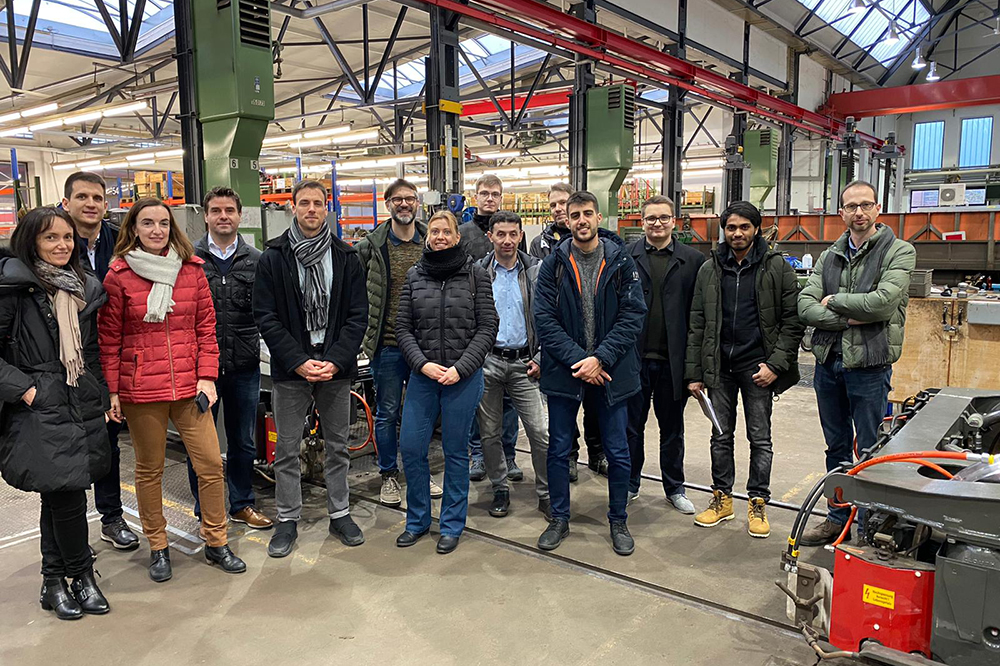
Simulation of a rail terminal for goods transport
May 10, 2020
Go Zero Waste – The app that locates shops where you can buy without plastic
June 5, 2020One of the main difficulties faced by shared vehicle companies (Carsharing) and public transport is to maintain the vehicle interior in optimal conditions when the user changes, to improve the experience of the journey.

The AntiTrash project (smart cleaning and prevention of damage for shared mobility) promotes a change in model for the regular cleaning of shared vehicles with the best results. In this context, a system is developed to detect automatically rubbish or potential damage to the shared vehicle or public transport. Through machine learning techniques, images will be used that are obtained by a camera that inspects the interior of the vehicle to assess its state. This will also enable identification of the person responsible for the damage and/or rubbish in the shared vehicle so that they can be directly charged the maintenance costs if necessary.
In addition, the use of smart materials that increase the durability of the interior (plastics, metals and polymers) is considered, as well as the use of nanotechnology (microfluidic hydraulic systems) to detect smells and particles that ensure good air quality inside the car. This also contributes to reducing cleaning costs and makes it easier to replace vehicle components.
The AntiTrash project is funded in the Innovation Project 2020 category by EIT Urban Mobility and is expected to continue until the end of 2021. The project is coordinated by AALTO University. Other participants are the Microtech lab and UPC INTEXTER, CARNET (CIT UPC co-ordinate), the NFF in Braunschweig, SEAT, Zone Cluster and the city of Hamburg.
EIT Urban Mobility is funded by the European Institute of Innovation and Technology (EIT).

Project Partners

Technology
Sector
Topic
You want to know more?
Related Projects
- The Barcelona Innovative Transportation (BIT), the Research Center in Automotive and Advanced Mobility (CER-AMA) and The Future Mobility Research Hub (CARNET) research groups from the Universitat Politècnica de Catalunya - BarcelonaTech (UPC) are participating in the E-MED project, which aims to optimise energy and resource efficiency in public transport systems by addressing energy price fluctuations through smart and participatory solutions across the Mediterranean region.
- A research team involving the Barcelona Innovative Transportation (BIT), inLab FIB, CARNET Barcelona – Future Mobility Research Hub (CER-AMA), and the Department of Computer Architecture (DAC) of the Universitat Politècnica de Catalunya - BarcelonaTech (UPC) is driving the i-MovE project, which aims to incorporate multisectoral data to provide much more accurate and valuable information for the mobility sector. The project develops four use cases focused on both companies and mobility authorities, covering public and individual transport, using the UPCxels demonstrator.
- The Research Center for Supervision, Safety and Automatic Control (CS2AC-UPC) at the Universitat Politècnica de Catalunya - BarcelonaTech (UPC) has coordinated the SaCoAV project, focused on researching new methods and tools to ensure the safe coordination of autonomous vehicles in urban environments.
- As part of the USEFUL project, the Centre for Sensor, Instrumentation and Systems Development (CD6) at the Universitat Politècnica de Catalunya - BarcelonaTech (UPC) has equipped a low-emission vehicle that will drive through the streets of Terrassa with optical sensors integrated into a complex system for data computing, visualisation, and storage. This car will collect and store thousands of anonymous driving data points, which will be used to develop more accurate algorithms for autonomous driving.




